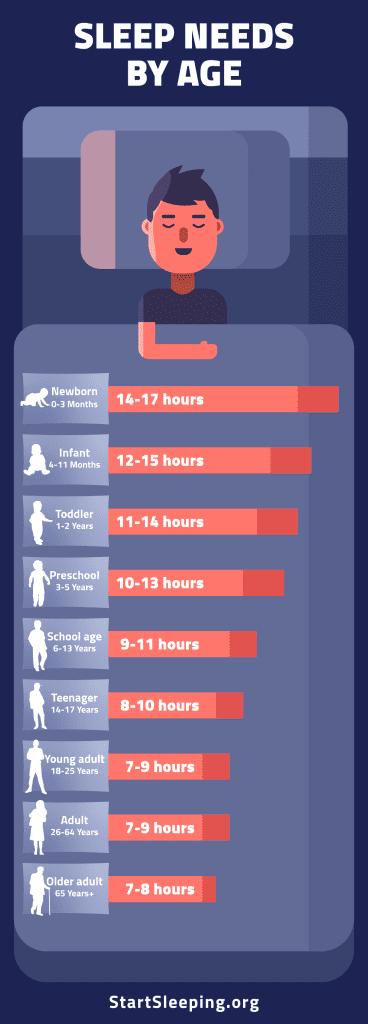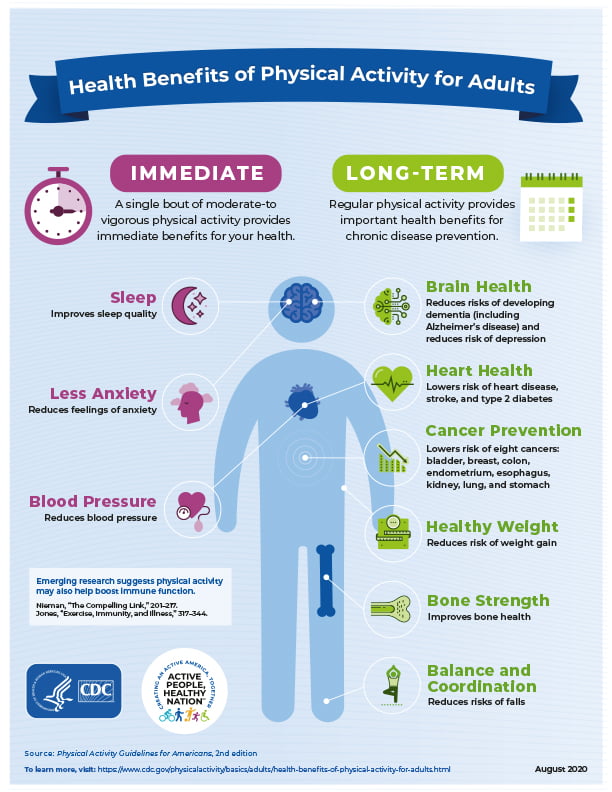How many hours should an adult sleep? It’s a question that has puzzled many of us as we juggle our busy lives and try to find the perfect balance between work, family, and self-care. Well, fear not, because I’m here to shed some light on this topic for you. So, grab a cup of coffee, get cozy, and let’s dive in!
When it comes to sleep, there’s no one-size-fits-all answer. The amount of sleep each person needs can vary based on factors such as age, lifestyle, and overall health. However, on average, most adults should aim for around 7 to 9 hours of sleep per night. Now, I know what you’re thinking – “That’s easier said than done!” Trust me, I get it. Life can be hectic, and it’s not always easy to prioritize sleep. But let me tell you, getting enough rest is crucial for your physical and mental well-being.
So, why is sleep so important? Well, during those precious hours of shut-eye, your body goes to work repairing and rejuvenating itself. It’s like hitting the refresh button on your system. Sleep helps regulate your hormones, boosts your immune system, and improves your cognitive function. Plus, it’s a key player in managing stress and promoting emotional well-being. So, if you’ve been burning the midnight oil and neglecting your sleep, it’s time to rethink your priorities. Remember, a well-rested adult is

How Many Hours Should an Adult Sleep?
Sleep is an essential component of our overall well-being, and getting the right amount of sleep is crucial for maintaining good health. But how many hours should an adult sleep? The answer to this question can vary depending on various factors, including age, lifestyle, and individual needs. In this article, we will delve into the topic of adult sleep and explore the recommended hours of sleep for different age groups.
The Importance of Adequate Sleep
Adequate sleep is vital for our physical and mental health. It plays a crucial role in supporting brain function, memory consolidation, and overall cognitive performance. When we sleep, our body goes through various stages of sleep, including deep sleep and REM (Rapid Eye Movement) sleep, which are essential for restoring and rejuvenating our body and mind.
Getting enough sleep also impacts our immune system, helping to fight off infections and diseases. It can also regulate our appetite and promote a healthy metabolism, reducing the risk of obesity and related health conditions. Moreover, quality sleep is known to improve mood, reduce stress levels, and enhance our overall well-being.
The Recommended Hours of Sleep for Adults
The National Sleep Foundation provides general guidelines for the recommended hours of sleep for adults. However, it is important to note that individual sleep needs may vary. Here is a breakdown of the recommended hours of sleep for different age groups:
Young Adults (18-25 years)
Young adults typically require around 7-9 hours of sleep per night to function optimally. However, individual differences may exist, and some young adults may thrive on slightly more or less sleep. It is essential to listen to your body and ensure you are getting enough restful sleep to feel refreshed and rejuvenated.
Adults (26-64 years)
Adults in this age range generally need around 7-9 hours of sleep per night as well. However, lifestyle factors and individual differences can affect sleep needs. Some adults may find that they function better with slightly more or less sleep. It is important to prioritize sleep and find the right balance that works best for you.
Older Adults (65+ years)
As we age, our sleep patterns may change. Older adults tend to require slightly less sleep, averaging around 7-8 hours per night. However, individual variations exist, and some older adults may still need the same amount of sleep as younger adults. It is important to maintain a consistent sleep schedule and listen to your body’s needs.
The Impact of Sleep Deprivation
Consistently not getting enough sleep can have detrimental effects on our health and well-being. Sleep deprivation can lead to various issues, including:
1. Impaired Cognitive Function: Lack of sleep can affect our ability to concentrate, make decisions, and perform tasks effectively.
2. Increased Risk of Chronic Conditions: Sleep deprivation has been linked to an increased risk of chronic conditions such as obesity, diabetes, heart disease, and high blood pressure.
3. Weakened Immune System: Inadequate sleep can weaken our immune system, making us more susceptible to infections and illnesses.
4. Mood Disorders: Sleep deprivation can contribute to mood swings, irritability, anxiety, and depression.
5. Impaired Physical Performance: Lack of sleep can negatively impact physical performance, coordination, and reaction time.
Tips for Getting Quality Sleep
To ensure that you are getting the right amount of quality sleep, here are some tips to consider:
1. Stick to a Consistent Sleep Schedule: Go to bed and wake up at the same time every day, even on weekends.
2. Create a Relaxing Bedtime Routine: Establish a relaxing routine before bed to signal to your body that it is time to sleep. This can include activities such as reading, taking a warm bath, or practicing relaxation techniques.
3. Create a Sleep-Friendly Environment: Make sure your bedroom is cool, quiet, and dark. Use comfortable bedding and invest in a supportive mattress and pillow.
4. Limit Exposure to Electronic Devices: Avoid using electronic devices, such as smartphones and tablets, close to bedtime, as the blue light emitted from these devices can interfere with sleep.
5. Avoid Stimulants: Limit your intake of caffeine and avoid consuming it close to bedtime. Also, avoid heavy meals, nicotine, and alcohol before bed, as they can disrupt sleep patterns.
In conclusion, the recommended hours of sleep for adults can range from 7-9 hours per night, depending on age and individual needs. It is important to prioritize sleep and establish healthy sleep habits to ensure optimal physical and mental well-being. By getting enough quality sleep, you can enhance your overall health, cognitive function, and daily performance.
Key Takeaways: How Many Hours Should an Adult Sleep?
- On average, adults should aim to get 7-9 hours of sleep each night.
- Getting enough sleep is important for overall health and well-being.
- Sleep deprivation can lead to various health issues, including decreased cognitive function and increased risk of accidents.
- Establishing a consistent sleep schedule and creating a relaxing bedtime routine can help improve sleep quality.
- Individual sleep needs may vary, so it’s important to listen to your body and adjust your sleep duration accordingly.
Frequently Asked Questions
What is the recommended number of hours for an adult to sleep?
Getting enough sleep is crucial for maintaining good health and overall well-being. The National Sleep Foundation recommends that adults between the ages of 18 and 64 should aim for 7-9 hours of sleep per night. However, it’s important to note that individual sleep needs can vary. Some adults may find that they function best with slightly more or less sleep than the recommended range.
Factors such as age, lifestyle, and overall health can influence the amount of sleep needed. It’s important to listen to your body and pay attention to how you feel after different amounts of sleep. If you consistently feel tired or groggy during the day, it may be a sign that you need to adjust your sleep schedule and aim for more hours of restful sleep.
Can you get by with less than the recommended hours of sleep?
While it’s possible to function on less sleep in the short-term, consistently getting less than the recommended number of hours can have negative effects on your health and well-being. Lack of sleep can lead to increased risk of chronic conditions such as obesity, diabetes, and cardiovascular disease. It can also impair cognitive function, affecting your ability to concentrate, make decisions, and retain information.
Additionally, insufficient sleep can impact your mood, causing irritability, mood swings, and increased stress levels. It’s important to prioritize sleep and make it a priority in your daily routine to ensure that you are getting enough rest for optimal health and performance.
What are the consequences of oversleeping as an adult?
Oversleeping, or getting more sleep than your body needs, can also have negative effects on your health. While occasional oversleeping may not cause any harm, consistently sleeping longer than necessary can lead to a variety of health issues. Some studies have shown that excessive sleep is associated with an increased risk of obesity, depression, and even mortality.
Furthermore, oversleeping can disrupt your natural sleep-wake cycle, making it more difficult to fall asleep at night and wake up in the morning. It can also leave you feeling groggy and lethargic throughout the day. If you find yourself consistently oversleeping, it may be worth discussing with a healthcare professional to rule out any underlying health conditions that may be contributing to excessive sleep.
Can napping help compensate for lack of nighttime sleep?
Napping can be a helpful way to boost alertness and make up for a lack of nighttime sleep. Short power naps of around 20-30 minutes can provide a quick burst of energy and improve cognitive function. However, it’s important to be mindful of the timing and duration of your naps.
Taking long or late naps can interfere with your ability to fall asleep at night and disrupt your sleep schedule. It’s best to avoid napping too close to your regular bedtime. Additionally, if you find that you consistently rely on naps to make up for insufficient nighttime sleep, it may be an indication that you need to prioritize getting more sleep during the night.
How can I improve the quality of my sleep?
There are several strategies you can try to improve the quality of your sleep. Establishing a consistent sleep schedule by going to bed and waking up at the same time each day can help regulate your body’s internal clock and improve sleep quality. Creating a relaxing bedtime routine, such as taking a warm bath or practicing relaxation techniques, can also signal to your body that it’s time to wind down and prepare for sleep.
Avoiding stimulants such as caffeine and electronics before bedtime can also promote better sleep. Creating a comfortable sleep environment, with a cool, dark, and quiet room, can help optimize your sleep environment. If you continue to have difficulty sleeping or suspect you may have a sleep disorder, it’s important to consult with a healthcare professional for further guidance.
Sleep Time & Age
Final Summary: The Importance of Getting Enough Sleep
In conclusion, it is crucial for adults to prioritize getting enough sleep for their overall well-being. Sleep plays a vital role in our physical health, mental clarity, and emotional stability. While the exact number of hours may vary for each individual, the general guideline is to aim for seven to nine hours of quality sleep each night.
Sleep deprivation can have significant consequences on our daily lives. It can lead to decreased cognitive function, impaired decision-making, and increased risk of accidents. Additionally, inadequate sleep has been linked to a higher likelihood of developing chronic conditions such as obesity, diabetes, and cardiovascular disease.
Getting enough sleep is not just about the quantity, but also the quality. Creating a conducive sleep environment, practicing good sleep hygiene, and managing stress levels can all contribute to a restful night’s sleep. It is important to establish a consistent sleep routine that allows for relaxation and unwinding before bedtime.
By prioritizing sleep and recognizing its importance, adults can improve their overall health, productivity, and quality of life. So, let’s make sleep a priority and reap the numerous benefits it offers. Remember, a well-rested mind and body are the foundations for a happy and fulfilling life.






